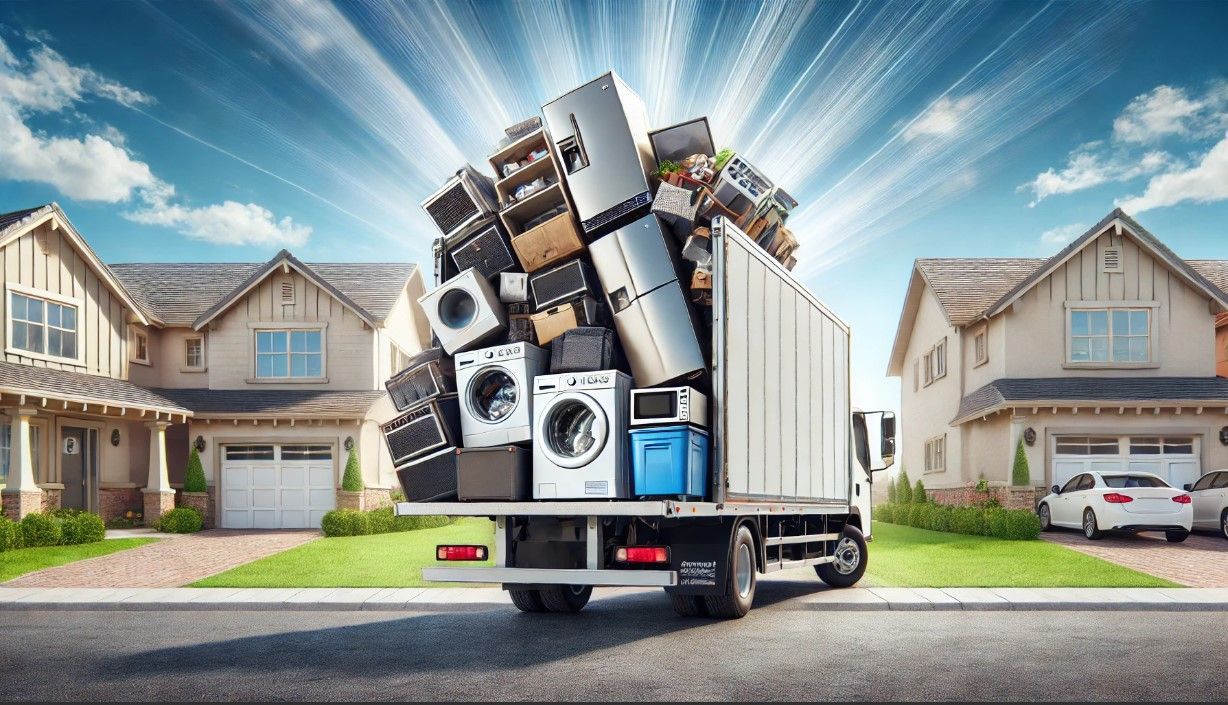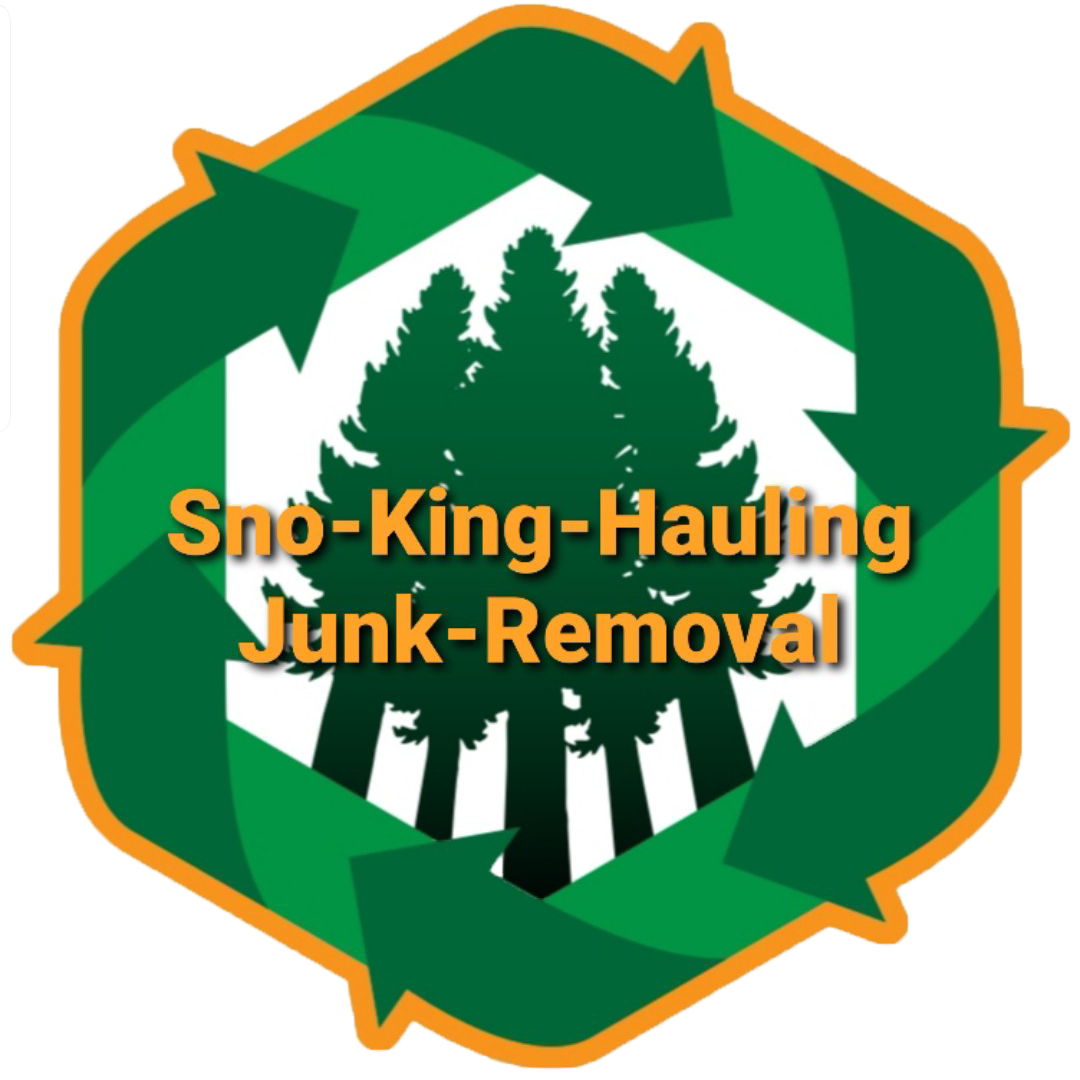
How to Recycle and Remove Old Appliances Safely and Responsibly
If you're like most people, you've probably faced the challenge of disposing of an old refrigerator, washing machine, or other large appliances. These items are heavy, cumbersome, and often not accepted by regular trash services.
But did you know there are eco-friendly ways to recycle and remove old appliances? In this guide, we'll walk you through why
proper disposal is essential, how to go about it, and what options are available for both recycling and removal. You'll also learn about the environmental benefits of recycling appliances and how it can save you money.
Why Proper Appliance Disposal Matters
When appliances reach the end of their life, they become more than just a space hog. Improper disposal can lead to several issues, such as:
- Environmental Impact: Appliances contain harmful chemicals like refrigerants and heavy metals that can leak into the soil and water if not properly handled.
- Energy Waste: Recycling old appliances helps conserve energy. For example, recycling a single refrigerator can save enough energy to power a home for several months.
- Legal Consequences: Some localities have strict laws regarding the disposal of appliances, and failing to comply can result in hefty fines.
Steps to Recycle and Remove Old Appliances
1. Assess the Condition of Your Appliance
- Still Working? If your appliance is still functional, consider donating it to a charity, a family in need, or a second-hand store.
- Beyond Repair? If the appliance is broken or unsafe, it’s best to look into recycling options to ensure it's disposed of properly.
2. Check for Local Appliance Recycling Programs
- Many cities offer special pick-up services or designated drop-off locations for old appliances. Check your local waste management website for details.
- Retailer Take-Back Programs: Some retailers offer take-back programs when you purchase a new appliance. They often recycle the old unit for free.
3. Hire a Professional Junk Removal Service
- Convenience: A professional service can handle all the heavy lifting, transportation, and proper disposal of your appliance.
- Eco-Friendly Options: Many junk removal companies prioritize recycling and will ensure that your old appliances are processed correctly.
4. Prepare Your Appliance for Removal
- Clean It Out: Remove all food, personal items, and hazardous materials.
- Secure Loose Parts: Tape down doors, handles, and any detachable parts to prevent accidents during transport.
What Happens to Recycled Appliances?
Recycling old appliances involves several steps to ensure materials are processed correctly:
- Refrigerants and Hazardous Materials: Technicians safely extract harmful refrigerants and dispose of them according to environmental regulations.
- Component Separation: Appliances are dismantled into their basic components—metal, plastic, glass, and electronics. Each material is then recycled separately.
- Metal Recovery: Metals like steel and aluminum are extracted and melted down to be used in manufacturing new products.
The Environmental Benefits of Recycling Appliances
Recycling appliances offers several benefits beyond just clearing out space in your home:
- Reduces Greenhouse Gas Emissions: Proper disposal prevents harmful refrigerants from leaking, reducing greenhouse gas emissions.
- Conserves Resources: Recycling materials reduces the need to mine new resources, conserving raw materials and reducing environmental impact.
- Supports Local Economies: Recycling centers and programs create jobs in your community, contributing to economic growth.
Common FAQs About Appliance Recycling and Removal
Q: Can I just leave my old appliance on the curb for trash pick-up?
A: In most areas, regular trash services do not accept large appliances due to the special handling required. It's best to check with your local waste management services or arrange for a recycling pick-up.
Q: Are there any costs associated with recycling appliances?
A: Some recycling programs are free, especially if you're dropping off the appliance yourself. However, services like professional junk removal may charge a fee depending on the size and type of the appliance.
Q: What if my appliance still works? Should I recycle it?
A: If your appliance is still functional, consider donating it to extend its life. Recycling should be a last resort for appliances that no longer work or are unsafe to use.
Tips for a Smooth Appliance Removal Process
- Plan Ahead: Schedule your appliance removal when you know you will be available to ensure everything goes smoothly.
- Ask About Recycling Policies: If you're hiring a professional service, ask about their recycling policies to ensure your appliance is handled responsibly.
- Get a Receipt: If you're dropping off your appliance at a recycling center, ask for a receipt or proof of disposal. This can be useful for tax purposes or verifying proper recycling.
Comparison of Appliance Disposal Options
| Disposal Option | Cost | Environmental Impact | Convenience |
|---|---|---|---|
| Donate to Charity | Free | High (reuses appliance) | Moderate |
| Retailer Take-Back Program | Free or Low Fee | High (often includes recycling) | High |
| Local Recycling Program | Free or Low Fee | High (ensures proper disposal) | Moderate |
| Professional Junk Removal | Fee-Based | High (eco-friendly options) | Very High |
Have you ever tried to recycle an old appliance? What challenges did you face? Share your experiences in the comments below! Also, if you found this article helpful, please share it on social media to help others learn about responsible appliance disposal.
Stay Up-to-Date
It's essential to keep up with local regulations and recycling programs as they can change frequently. Regularly updating this information not only ensures compliance but also keeps your content relevant and useful for your readers.
Furniture Removal
Appliance Removal
Other Services
- Hot tub Junk Removal
- Dumpster Rentals
- Shed Junk Removal
- Hoarder house Cleanouts
- House Junk Removal
- Construction Waste Removal
- Garage Cleanouts
- Foreclosure Clear outs
- Eviction Clean outs
- Apartment Cleanouts
- Property Clean outs
- Estate Clean outs
- Hoarding Clean outs
- Yard Waste Removal
- Storage Unit Cleanouts
- Warehouse Cleanouts
- Commercial Junk Removal
OUR SERVICES AND AREAS
- Everett, WA
- Seattle, WA
- Marysville, WA
- Snohomish, WA
- Arlington, WA
- Mukilteo, WA
- Monroe, WA
- Granite Falls, WA
- Bothell, WA
- Whidbey Island, WA
- Stanwood, WA
- Edmonds, WA
Contact us
If you have any questions or need any assistance after business hours, please get in touch.
Phone
BUSINESS HOURS
- Monday
- -
- Tuesday
- -
- Wednesday
- -
- Thursday
- -
- Friday
- -
- Saturday
- -
- Sunday
- Closed
All Rights Reserved | Sno King Junk Removal
